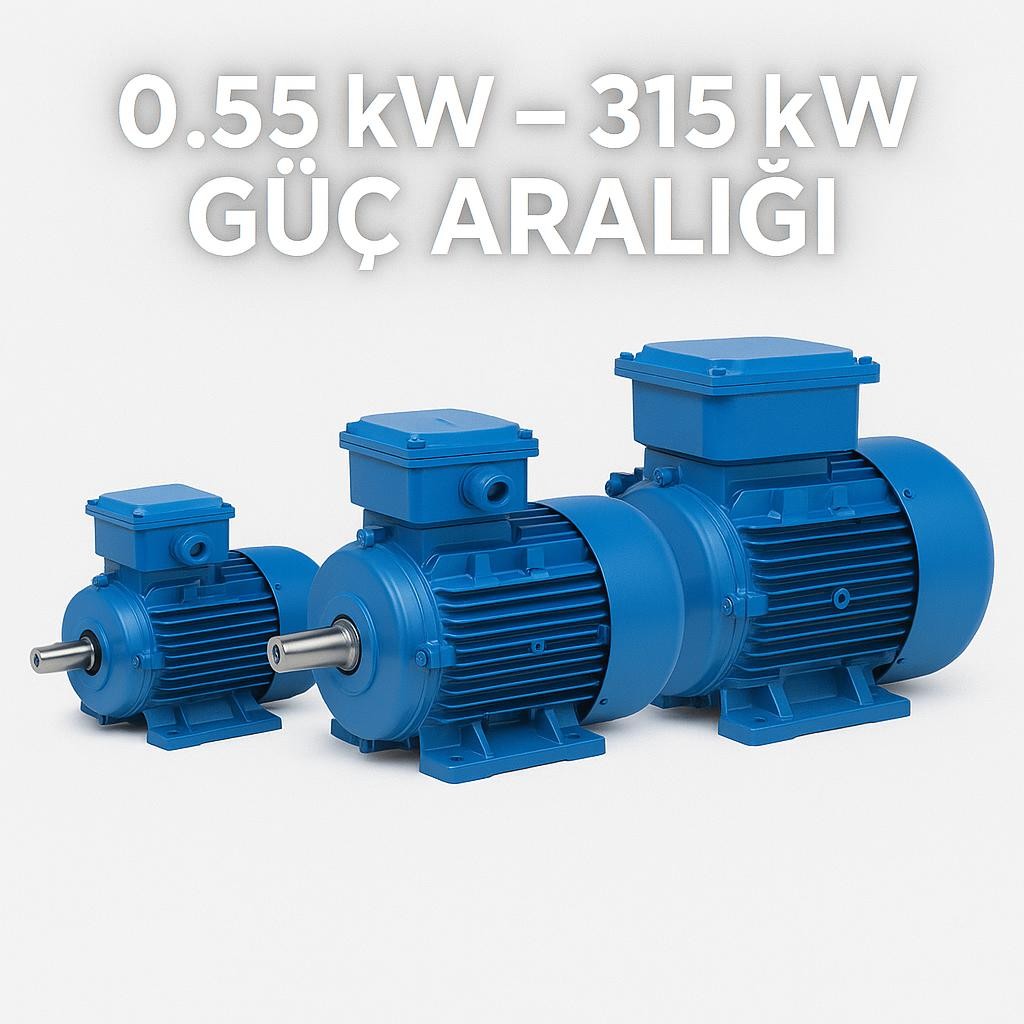Electric Motors for Industrial Use
Contact: +90 (542) 666 11 11
Electric motors are fundamental power sources used in a wide range of industrial applications. From manufacturing to transportation, pumping, and ventilation systems, electric motors play a critical role in improving efficiency and reducing operational costs. Industrial-grade electric motors are designed to be durable, high-performing, and adaptable to various industrial needs. These motors provide excellent energy efficiency and long-lasting operation in both small businesses and large industrial plants.
Features of Electric Motors for Industrial Use
Electric motors for industrial applications are typically built to be powerful, long-lasting, and highly efficient. These motors are engineered with special designs and advanced technology to perform at high levels of reliability and efficiency. Industrial motors focus on factors like high efficiency, low energy consumption, minimal maintenance requirements, and a long service life.
The power capacity of industrial motors varies based on their size and type, but they generally offer power outputs ranging from 0.5 kW to 1000 kW. Parameters like speed, torque, efficiency, and reliability are optimized based on the specific industrial application.
Advantages of Industrial Electric Motors
-
High Performance and Reliability
Electric motors designed for industrial use provide high performance, even under harsh operating conditions and long-term use. These motors ensure continuous operations in large plants and heavy-duty applications, offering reliable service for uninterrupted productivity. -
Energy Efficiency and Savings
Energy efficiency is one of the key advantages of industrial electric motors. Efficient motors help reduce energy consumption, lowering electricity bills and providing significant cost savings, particularly in large-scale operations. -
Low Maintenance Costs
Industrial electric motors are built with durable materials and designed for long-term, trouble-free operation. This minimizes maintenance needs and reduces downtime, ultimately increasing operational efficiency. -
Environmentally Friendly Solutions
Modern industrial motors are eco-friendly, offering low energy consumption and reduced emissions. By consuming less energy, these motors help reduce the carbon footprint and contribute to more sustainable industrial processes. -
Flexible Applications
Industrial electric motors can be customized to meet a wide variety of industrial needs. They are used in pumping systems, ventilation systems, conveyor belts, production lines, and many other heavy-duty applications. These motors can be configured for specific torque and speed requirements based on the task.
Applications of Industrial Electric Motors
Electric motors for industrial use are found in nearly every industrial sector. Some common applications include:
-
Manufacturing Plants: Electric motors are used in machines on production lines, conveyor systems, and robotic equipment.
-
Pumping Systems: Motors are used in pumping water, wastewater, chemicals, and gases.
-
HVAC Systems: Motors are used in industrial heating, ventilation, and air conditioning systems to circulate air.
-
Construction and Mining: Motors power heavy machinery, cranes, transport equipment, and portable generators.
-
Agriculture and Food Industry: Motors are used in agricultural machinery, food processing machines, and dairy plants.
-
Automotive and Transport: Motors are employed in electric vehicles, elevators, and transport machinery.
The Future of Industrial Electric Motors
With the rise of Industry 4.0, electric motors are becoming smarter and more efficient. Advances in sensors and data analysis allow for the real-time monitoring and optimization of motor performance, improving maintenance processes and further boosting efficiency. As energy efficiency standards continue to rise, future electric motors will become even more environmentally friendly and energy-efficient, playing a critical role in the sustainable growth of industrial applications.
In the future, electric motors will continue to play a
 English
English
 Türkçe
Türkçe

